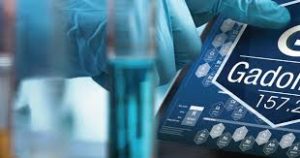Conducting the diagnosis of a medical condition or injury is now easier than ever because of the remarkable advancements in medical science and technology. Performing different medical imaging techniques with utmost ease and effectiveness won’t have been possible without cutting-edge tools and equipment.
In addition, experts are constantly doing research in a thorough and rigorous manner in order to make imagining methods more efficient and effective. To help healthcare professionals diagnose and treat various disorders in an effectual way, Magnetic Resonance Imaging (MRI) plays a crucial role.
Latest Developments
Recently, a team of accomplished researchers has completed conducting a study and observed that the usage of high dosages of Gadolinium-based contrast agents aids in MRI improvements. However, it is mentioned in the study report that these agents can help enhance the standard of this particular medical imaging procedure in some cases.
Patients won’t experience any side effects in most instances, even if the doses of Gadolinium-based contrast agents are high. Gadolinium is the only preferred heavy metal for enhancement of medical resonance imaging because it does not adversely impact human beings.
The research report was published in Radiology a few days back, where researchers have shed light on the “safe for use” aspect of these super diagnostic dosages of Gadolinium-based contrast agents. It is also highlighted the safe retention level in rats’ brain tissue after intravenous administration.

Key Purpose behind the Use of Gadolinium-based Contrast Agents
There is no denying that, at present, nothing can be a good alternative to Gadolinium-based contrast agents. They have been successfully providing much requisite image improvement in MRI, which ultimately helps in the evolution of disease diagnosis methods and effective treatments.
Ionized gadolinium possesses paramagnetic properties, which are primarily responsible for contributing to advancements. However, the risk for toxicity is there because of ionized gadolinium. Therefore, these are safer and preferred more than the ones mainly used while conducting computed tomography.
With the expansion of the use of these Gadolinium-based contrast agents, the appearance of new disorders pertinent to their use has intrigued more people. GBCAs are safe for clinically administering in individuals with impaired renal function.
Researcher’s Activities
In order to understand better how the retention of these contrast agents affects subjects from a neurological and clinical perspective, researchers included these GBCAs in 183 male rats through intravenous administration. The team of research professionals examined these rats twice – once after 6 weeks and then after a long period of thirty-four weeks posy injecting them.
They found that the Gadolinium-based contrast agents could not affect the rats’ short-term memory, spatial memory, overall mobility, social interactions, coordination and balance. The researchers noticed the absence of histopathologic injury in the brain tissues of rats was exposed to the contrast agents.
However, researchers have mentioned in the study report that even though the use of GBCAs at super diagnostic levels is safe, further studies are required. Doing so will help them understand whether these contrast agents adversely impact humans’ health.
Most radiology clinics rely upon and use sepStream® because it is the most trusted medical imaging software solution. It is reputed for providing reliable and accurate imagining information and diagnostic report.